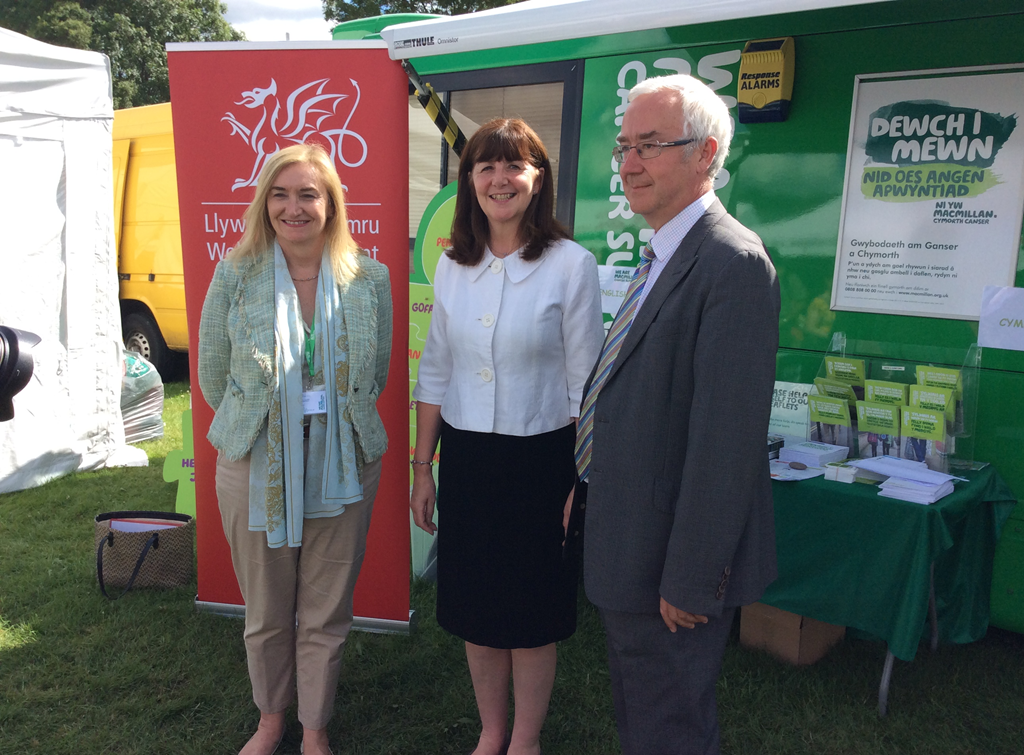Wales cancer patient experience survey (2016)

From Thursday 28 July, the second Wales Cancer Patient Experience Survey will be landing on some people’s doormats. Here Sue Williams, Macmillan Programme Manager for Wales explains why, if you receive a survey, it is important to fill it in and return it.
I’ve been involved with designing surveys for patients, medical and nursing students for over 20 years and yes, I am one of those people, who almost always, completes survey questions about my experience.
I’m careful about revealing my personal information but I feel strongly that a survey is my chance to feedback to the business / organisers what my experience was like. If no one replies, how can they improve?
More often I praise and feed back the positives too. For me, it’s just as important for an organisation to hear the positive as well as any negative comments.
Did you know there was a Wales Cancer Patient Experience survey in 2013?
This all-Wales survey was a joint venture between Welsh Government and Macmillan, and amazingly, over 7,300 people diagnosed with cancer (69% response rate) took precious time to fill in this survey.
The survey asked about people’s experience of their cancer diagnosis, treatment and care in Wales. What did they tell us? 89% of people rated their overall care as either excellent or very good and, whilst that was reassuring, it wasn’t the whole picture.
We know NHS staff work hard to deliver high-quality compassionate care but cancer care is complex and can be disjointed.
People told us that there was variation in experience and care between hospital sites and some cancer types. We also heard:-
- not everyone had a Clinical Nurse Specialist as their key worker;
- not everyone had a discussion about their needs or a written care plan;
- not everyone received high-quality information or timely signposting to welfare benefits advice;
- not everyone was told what other support was available to them and their loved ones.
So even though 89% of people rated their care highly, there was still room for improvement.
Of course, good outcomes of treatment are the ultimate goal, but the experience of treatment is often as important to people as its success.
A good experience can help people with cancer to feel supported and respected. Evidence shows that good patient experience is linked to other positive outcomes – including patients following their treatment plans.
What’s happened since the results came out?
The NHS listened and used the results to review their cancer services locally.
Macmillan used the findings to :
- fund and support the appointment of Clinical Nurse Specialists, lead cancer nurses and person-centred care project managers throughout Wales;
- develop cancer services with health boards e.g. acute oncology services to better support acutely ill people during their treatment;
- fund a primary care programme which supports GPs to diagnose cancer earlier and better support people to live well with and beyond their cancer;
- continue to campaign for improved cancer care in Wales.
What next?
It’s essential that we keep trying to understand people’s experiences of cancer care, what is working and what areas need to improve. Armed with this information, we’ll understand the needs of people with cancer better.
From Thursday 28 July, the second Wales Cancer Patient Experience Survey will be landing on people’s doorstep.
Once again, this is a partnership between Welsh Government and Macmillan. It’s an opportunity for eligible people diagnosed with cancer during 2015 to tell us about the care they received.
For the first time, people will also be able to complete the survey online by following the instructions on the paper survey.
What can you do to help?
This second survey will provide insight but, as always, we need decent completion response rates so that everyone is reassured that the views are representative of people with cancer in Wales.
If you receive the survey over the next few weeks please do fill it in and return it.
Your views are vitally important and really can make a difference. If you have any questions, there is a helpline telephone number on the survey.
If you’re a health professional and are asked about the survey by one of your patients, we would appreciate your support by encouraging eligible patients to complete and return their survey, as soon as possible.
I know it’s easy to overlook filling in any survey but the information from this cancer survey can be translated into action to improve cancer services. It will be used to praise what is working well, too.
It’s an opportunity to tell Welsh Government, Macmillan and the NHS what cancer care is really like in Wales.